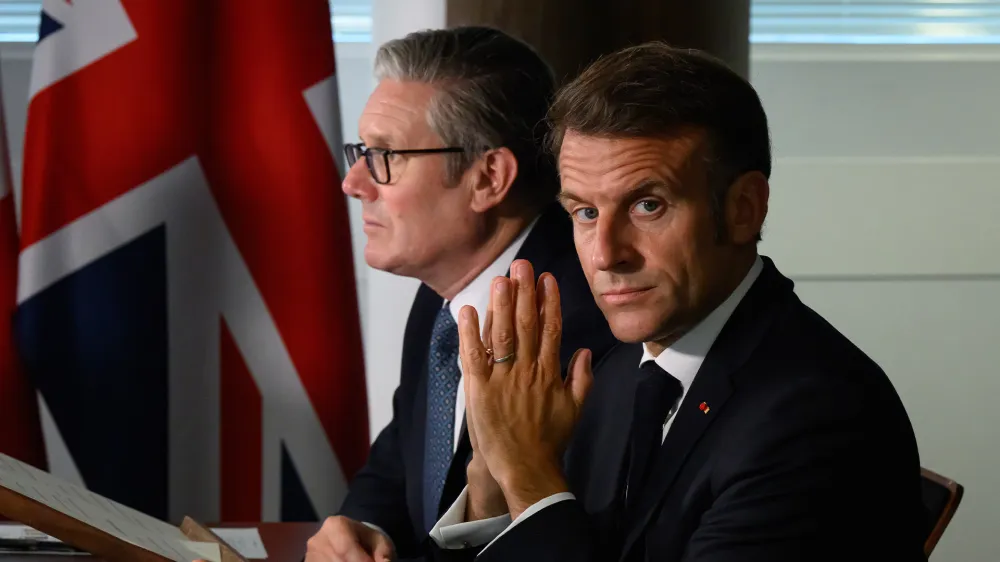On July 10, 2025, France and the United Kingdom signed a historic nuclear cooperation agreement – the Northwood Declaration, already dubbed in London as the “Lancaster Agreements 2.0.” The agreement envisions closer collaboration between the two countries in nuclear and broader military fields.
Key Provisions of the Agreement
The UK Prime Minister’s press release states that “France and the United Kingdom share a common understanding of the threats they face.” The agreement includes the following main measures:
- Joint responsibility for European and NATO defense: Although both countries maintain independent nuclear forces, the agreement allows for their coordination;
- Expanded exchange of information on nuclear policy, doctrine, and plans to improve coherence in planning and decision-making;
- Enhanced scientific cooperation: The parties intend to more actively utilize each other’s scientific and research capabilities, continuing cooperation started in 2010;
- Creation of a Joint Nuclear Steering Group: This group, led by the Élysée Palace and the UK Prime Minister’s office, will coordinate strategic, technical, and operational issues.
Additional elements include:
- Transition of the Future Cruise and Anti-Ship Weapon program into the development phase to create next-generation precision cruise and anti-ship missiles;
- Integration of missile defense and air defense systems, focusing on joint capabilities involving Aster, SAMP/T NG, and CAMM systems;
- Procurement of new SCALP and Storm Shadow missiles, with plans to acquire new batches and modernize production lines in both countries;
- Establishment of a Complex Weapons Portfolio Office integrated into the Organization for Joint Armament Cooperation (OCCAR), emphasizing close cooperation with MBDA to identify new investment opportunities;
- Strengthened cooperation in coordination, intelligence, and counterterrorism in the Indo-Pacific region.
Strategic and Political Aspects
French President Emmanuel Macron emphasized that the countries “do not exclude coordination of deterrence means. This is a signal that both our partners and adversaries should be aware of.” This echoes historical statements from the 1990s Checker Declaration and the 2010 Lancaster Agreements, which noted that “there is no situation in which the vital interests of one country could be affected without threatening the interests of the other.”
The creation of the Nuclear Steering Group marks a shift from consultations on doctrine and scientific matters to actual strategic, technical, and operational coordination. H. Fayet, an expert from the French Institute of International Relations, told Le Monde that this group continues the joint nuclear commission established in 1992 and opens the way to joint submarine patrols and strategic aviation exercises between the two countries. A French source close to the agreement’s preparation indicated to the author that one possible form of joint patrols could involve deploying French ballistic missile submarines on British submarines and vice versa.
Joint Expeditionary Forces
The agreement also foresees strengthening the Franco-British Combined Joint Expeditionary Force (CJEF), which can now number up to 50,000 troops, making it the largest formation within NATO. According to the press release, it will be capable of supporting large-scale operations, including possible deployment in Ukraine if a ceasefire occurs.
European Dimension of UK and French Nuclear Forces
Amid the continuing war in Ukraine, France and the UK see the need to strengthen European defense, including through the development of their own nuclear forces. Although Macron stated that the deepening cooperation is not linked to the Ukrainian conflict, the ongoing confrontation between Russia and the West has given new impetus to the idea of “Europeanizing” nuclear forces. Previously, there were discussions about deploying French nuclear-capable fighters in Poland, the Baltic states, and Germany – a step that Berlin had resisted but now cautiously supports amid doubts about US security guarantees.
Overall, the importance of nuclear programs is growing in both countries. France recently announced that at the Luxeuil airbase, which it had planned to close, two squadrons of Dassault Rafale fighters with nuclear capability and hypersonic weapons will be stationed. The UK is purchasing 12 new F-35A fighters to join NATO joint missions.
Implications
The development of Franco-British nuclear cooperation reinforces the Russian argument that the UK and France should also become parties in future arms control negotiations. While it is unlikely that both countries will express willingness to consider this prospect, recognizing common interests may lead to closer coordination in nuclear and conventional arms control.
Keywords: France, UK, Nuclear Non-Proliferation, European Security
NPT
E16/SHAH – 25/07/15


